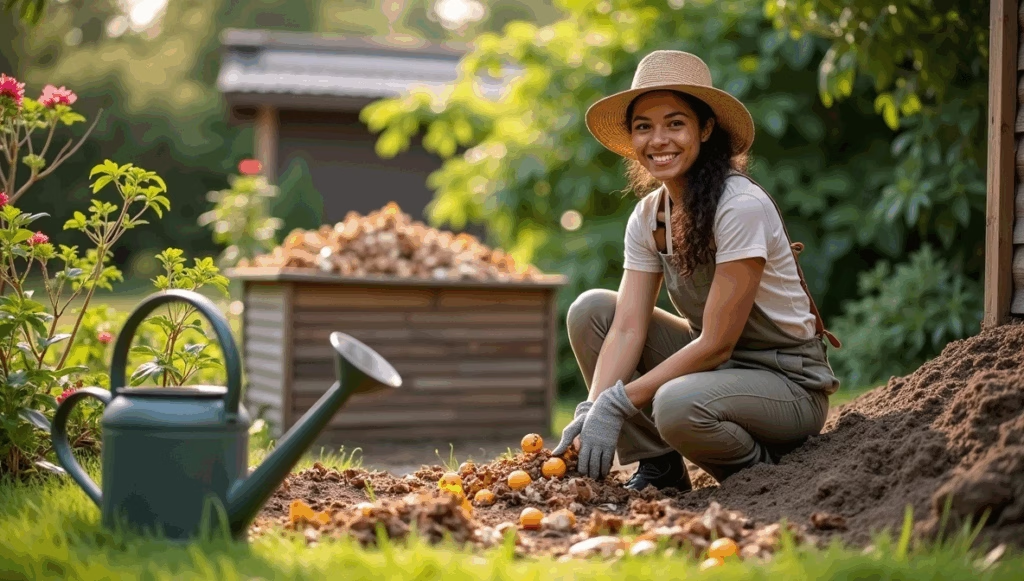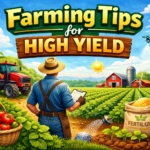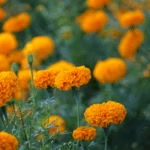Compost is one of the oldest yet most effective tools in sustainable agriculture. As modern farming faces the challenges of soil degradation, climate change, and declining crop yields, composting has emerged as a natural solution. But what is compost, and why do farmers use compost manure? This article explores the meaning of compost, its uses, and why composting is important in today’s agricultural systems.

What Is Compost?
Compost is a nutrient-rich organic material made by decomposing plant residues, food scraps, and other biodegradable matter. Through a natural process involving microbes, heat, and moisture, waste materials are broken down into a dark, soil-like substance. This end product is known as compost.
Compost Meaning in Simple Terms
In simple words, compost meaning refers to a natural fertilizer created from decomposed organic matter. It improves soil quality, boosts plant growth, and recycles nutrients back into the earth—making it an essential component of eco-friendly farming.
Why Do Farmers Use Compost Manure?
Farmers are turning to compost manure as a reliable and sustainable way to improve their soil and increase crop productivity. Here’s why farmers use compost manure:
1. Enhances Soil Fertility
Compost adds essential nutrients like nitrogen, phosphorus, and potassium to the soil. Unlike chemical fertilizers, it releases nutrients slowly, feeding plants over time and reducing the risk of nutrient leaching.
2. Improves Soil Structure
Compost improves the soil’s texture and water-holding capacity. This makes it easier for roots to grow and reduces erosion in fields.
3. Boosts Microbial Activity
Healthy soil is alive with beneficial microbes. Compost supports microbial life, which in turn helps plants absorb nutrients more effectively.
4. Reduces Dependence on Chemical Inputs
By using compost, farmers can cut down on chemical fertilizers and pesticides, lowering production costs and reducing environmental damage.
Why Composting Is Important in Modern Farming
Why composting is important goes beyond just soil health. It addresses several critical concerns in modern agriculture and environmental management.
1. Waste Reduction
Composting helps manage organic waste from farms, households, and food industries. Instead of ending up in landfills, this waste is recycled into valuable compost.
2. Climate Change Mitigation
Organic waste in landfills produces methane, a potent greenhouse gas. Composting prevents this emission, making it a climate-friendly practice.
3. Sustainable Agriculture
Composting supports regenerative agriculture by enhancing soil health, reducing inputs, and promoting long-term farm sustainability.
4. Cost-Effective Soil Amendment
For small and large farms alike, compost is a low-cost, high-impact solution to enrich soil and improve crop yields without heavy investments in synthetic fertilizers.
How Is Compost Made?
Compost is made through a process called aerobic decomposition, where organic materials break down in the presence of oxygen. The key ingredients include:
- Green waste: such as vegetable scraps, grass clippings, and manure
- Brown waste: like dried leaves, straw, and cardboard
- Moisture and air: for microbial activity
With proper balance and turning, compost is typically ready in 2 to 3 months.
Common Uses of Compost in Agriculture
- Soil Amendment: Mixed into topsoil to enrich its nutrient profile
- Mulching: Applied on soil surface to retain moisture and suppress weeds
- Organic Fertilizer: Used as a natural alternative to synthetic inputs
- Seed Starting Mix: Light compost is often blended for starting seedlings
Conclusion
Compost is more than just “rotted waste”—it is a powerful ally for sustainable and productive farming. Understanding the compost meaning, how it works, and why composting is important helps farmers make informed choices for soil health and environmental well-being. As modern agriculture evolves, composting remains a cornerstone of regenerative practices and a key ingredient in feeding the world responsibly.





